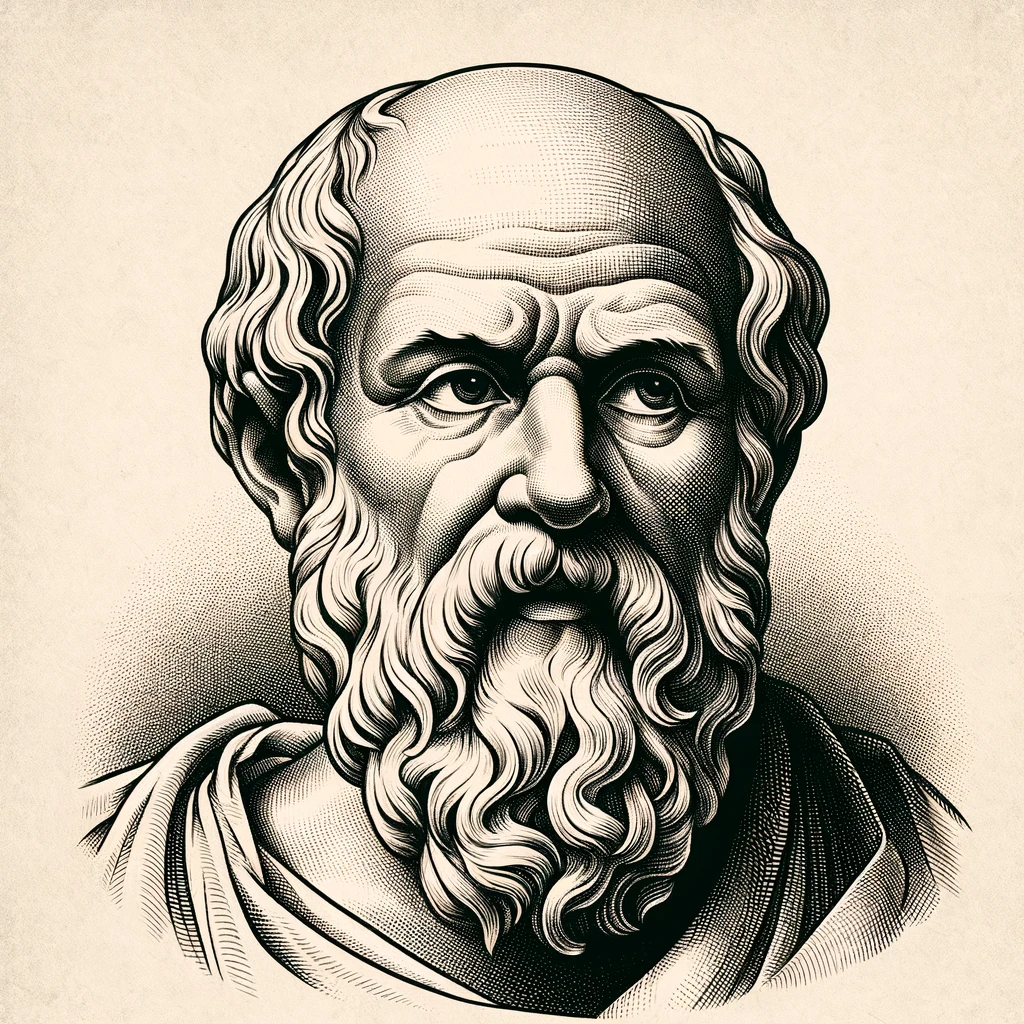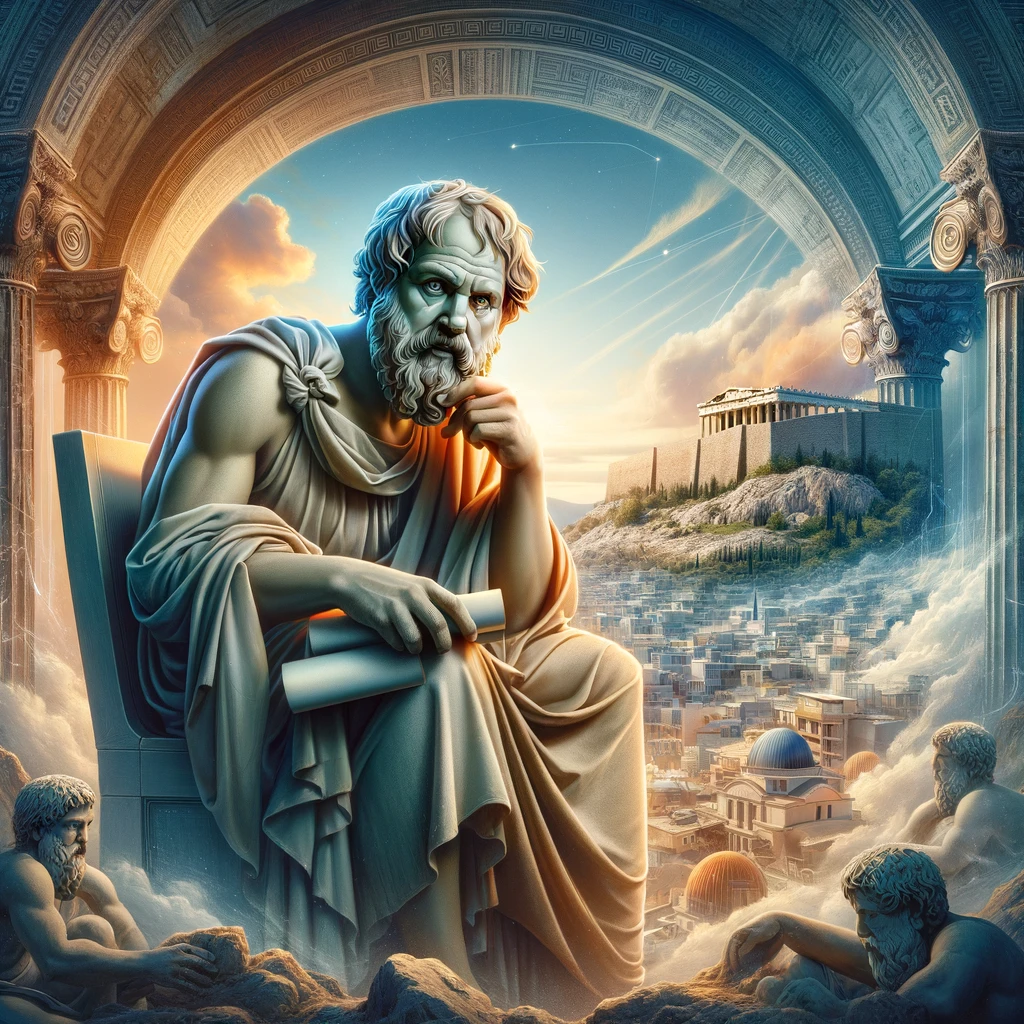As we conclude our series on the profound influence of Socrates, it is clear that his legacy is not confined to the annals of history but continues to resonate in the corridors of modern thought and daily life. Socrates, with his unyielding quest for truth and virtue, laid the groundwork for Western philosophy, challenging us to question, to think deeply, and to live lives of purposeful inquiry. This final post reflects on the enduring impact of Socrates’ teachings and invites readers to consider how his philosophical explorations can still be applied today.
Socrates’ Philosophical Foundations
Socrates’ contributions to philosophy cannot be overstated. His dialectical method of inquiry, emphasizing questions to stimulate critical thinking and illuminate ideas, revolutionized the way knowledge is pursued and understood. By asserting that “the unexamined life is not worth living,” Socrates championed a philosophy of introspection, ethics, and the constant pursuit of knowledge. This approach has influenced countless philosophers, from Plato and Aristotle to contemporary thinkers, shaping the foundational principles of ethics, epistemology, and logic.
Impact on Education and Society
Socrates’ emphasis on dialogue and inquiry has had a lasting effect on educational methodologies. The Socratic Method, characterized by fostering open dialogue and encouraging students to question and engage deeply with subjects, remains a cornerstone of pedagogical practices. Beyond academia, Socratic principles have permeated various aspects of society, advocating for democratic ideals, the importance of civic engagement, and the pursuit of justice.
Socrates in the Modern World
In today’s fast-paced and often uncertain world, Socrates’ teachings hold special relevance. His call to lead an examined life challenges us to navigate the complexities of the 21st century with thoughtfulness and moral clarity. The Socratic virtues of wisdom, courage, moderation, and justice serve as guiding principles in addressing contemporary issues such as political polarization, ethical dilemmas in technology and business, and the quest for personal fulfillment.
Applying Socratic Teachings Today
Reflecting on Socrates’ legacy prompts us to ask how we can apply his teachings in our own lives. Engaging in continuous learning, fostering open dialogues on difficult topics, and living authentically in pursuit of the good are just a few ways to embody the Socratic spirit. By embracing the idea that wisdom comes from acknowledging our own ignorance, we can foster a more empathetic, understanding, and virtuous society.
The journey through Socrates’ life and philosophy underscores the timeless relevance of his ideas. His legacy is not merely historical but vibrantly alive, challenging each of us to seek truth, practice virtue, and engage in the never-ending quest for knowledge. As we navigate the complexities of modern life, let us carry forward the Socratic legacy of inquiry and reflection, making our own lives, and the world around us, richer and more meaningful.








